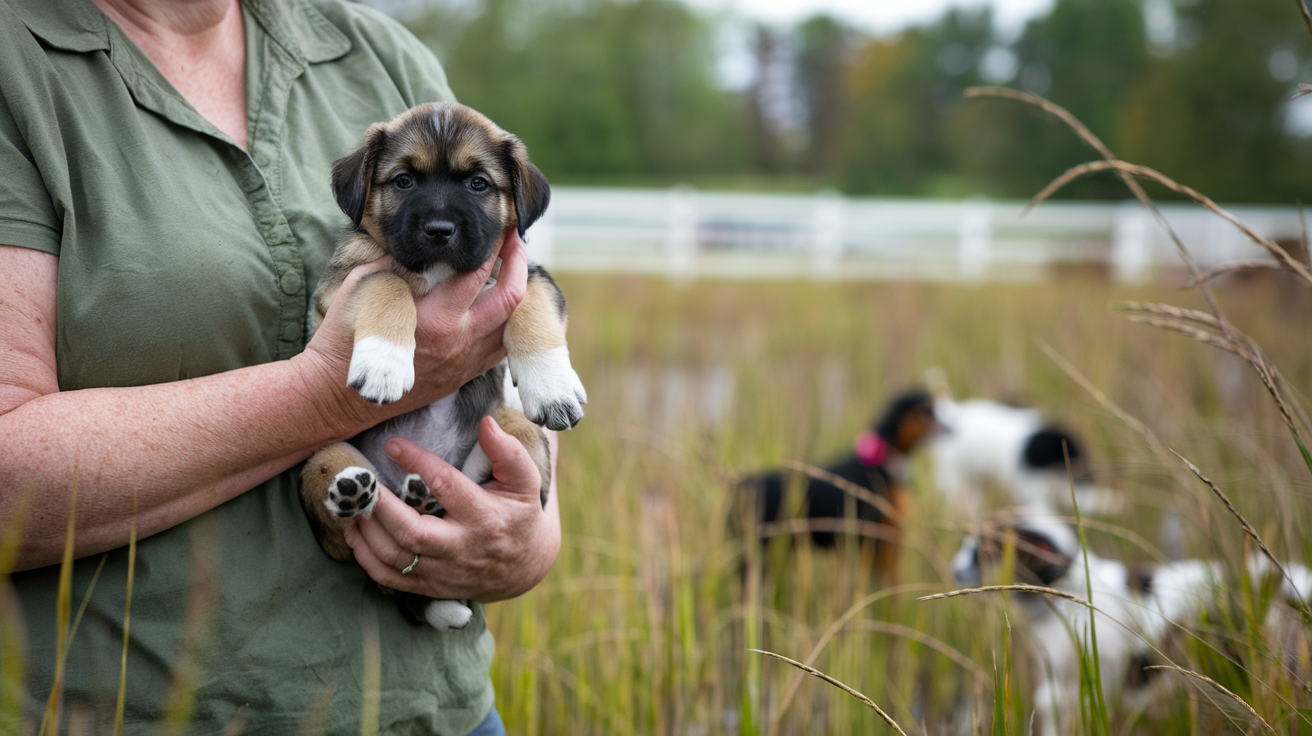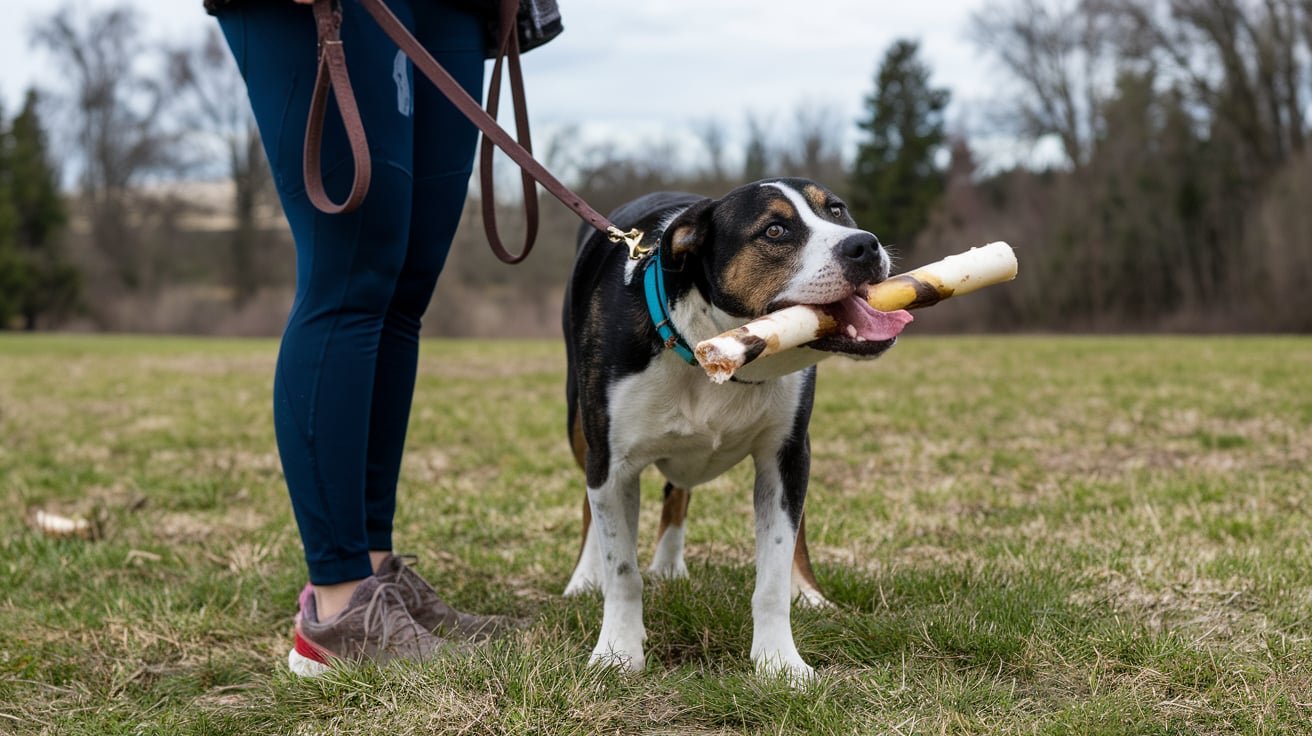Introduction To Breeding Tips for Dogs
Breeding dogs can be a rewarding yet challenging experience. It requires careful planning, knowledge, and dedication to ensure the health and well-being of both the mother and the puppies. Whether you’re a first-time breeder or looking to improve your breeding practices, this guide will provide you with essential breeding tips for dogs in the UK. By following these steps, you can breed responsibly and successfully.
1. Preparing for Breeding
Before breeding, it’s essential to make sure that you and your dog are fully prepared. This involves understanding the responsibilities and potential challenges of breeding.
- Age: Ensure your dog is of appropriate breeding age. For most breeds, the ideal time to breed is between the ages of 2 and 5 years. Breeding too early or too late can lead to health issues for both the mother and the puppies.
- Health Checks: Before starting the breeding process, have your dog checked by a veterinarian for any underlying health issues. This includes checking for common problems like hip dysplasia, eye disorders, or inherited genetic conditions that could affect the puppies’ health.
- Research: Read up on the breeding process and the particular needs of your dog’s breed. Certain breeds may have specific health risks or requirements during pregnancy and birth.
2. Choosing the Right Mate
Choosing the right mate for your dog is crucial to ensuring healthy offspring. Look for a mate that complements your dog’s characteristics and meets the breed standard.
- Temperament: Match your dog’s temperament with a suitable mate. This will help produce puppies with balanced personalities. If your dog is calm and gentle, you might want to find a mate with similar traits.
- Health Screening: Choose a mate that has been screened for genetic conditions, as this will help reduce the risk of passing on heritable diseases to the puppies. Common tests include DNA testing, hip and elbow screening, and eye exams.
- Pedigree: Ensure that the mate comes from a strong pedigree. This not only increases the likelihood of producing healthy puppies but also ensures that the puppies will meet the breed standard.
3. Health Considerations for Breeding Dogs
Maintaining your dog’s health is the cornerstone of responsible breeding. Here are some important health considerations:
- Vaccinations: Make sure that your dog is up to date on vaccinations before breeding. This helps prevent infections and ensures a healthy pregnancy.
- Weight and Nutrition: Both the male and female dog should be in good shape before breeding. Overweight or underweight dogs can face complications during mating and pregnancy. Feeding a high-quality dog food and providing proper nutrition is essential.
- Parasite Control: Your dog should be free of parasites like worms, fleas, and ticks. These can affect both the dog’s health and the development of the puppies.
- Genetic Testing: Genetic testing helps ensure that the dog is free of inheritable diseases. This is particularly important for pedigree breeds, as certain genetic conditions can be passed on to the puppies.
4. The Breeding Process
When it comes to breeding, timing is everything. Here’s what you need to know about the actual process:
- Understanding the Heat Cycle: A female dog typically goes into heat every 6 months, and this is the best time for mating. The most fertile period is usually in the middle of the heat cycle. Signs of heat include increased urination, a change in behavior, and swelling of the vulva.
- Mating: There are different ways to mate dogs, including natural breeding or artificial insemination. If you’re using artificial insemination, it’s best to work with a veterinarian to ensure the process is done correctly.
- Supervision: It’s essential to supervise the mating process to ensure that both dogs are safe and comfortable. Sometimes, dogs may need assistance during mating, especially if they are inexperienced.
5. Pregnancy and Care
Once the mating is successful, your female dog will become pregnant, and you must provide her with the proper care:
- Signs of Pregnancy: Early signs of pregnancy include increased appetite, weight gain, and behavioral changes. Around the 3-week mark, your dog’s belly may begin to expand.
- Veterinary Care: Regular vet visits during pregnancy are important to monitor the health of both the mother and the puppies. The vet will check for any signs of complications and offer advice on how to care for your pregnant dog.
- Nutrition for Pregnant Dogs: Pregnant dogs need more calories and nutrients to support the growing puppies. Consider feeding her a specially formulated pregnancy diet or puppy food to ensure she gets enough nutrition.
- Exercise: While pregnant, your dog should still get moderate exercise to stay healthy. However, avoid overexertion, especially as her due date approaches.
6. Caring for Newborn Puppies
Once the puppies are born, your responsibility shifts to caring for them. Here are some essential tips for looking after newborn puppies:
- The Birth Process: Most dogs give birth without any assistance, but it’s essential to be prepared for any complications. If the labor lasts more than a few hours, or if there’s a puppy stuck, contact your veterinarian immediately.
- Puppy Care: After birth, the mother will clean and feed her puppies. If she’s unable to nurse them properly, you may need to step in with puppy formula. Puppies should stay with their mother for at least the first 8 weeks of life.
- Socialization: Puppies should be socialized early to ensure they grow up to be well-adjusted adults. Handle the puppies frequently and expose them to different sights, sounds, and people.
7. Legal Considerations in the UK
In the UK, there are specific breeding regulations that you must follow to ensure that your breeding practices are legal:
- Licensing: If you breed three or more litters per year or sell puppies, you must apply for a breeding license from your local council. This ensures that your breeding practices are ethical and meet legal standards.
- Health and Welfare: The UK has strict animal welfare laws, and breeders must ensure the health and welfare of both the mother and the puppies. This includes providing a clean and safe environment for the dogs and ensuring they receive the necessary medical care.
8. Common Mistakes to Avoid
Breeding dogs is not a decision to take lightly. Many new breeders make mistakes that can have long-term consequences for the dogs involved. Here are a few mistakes to avoid:
- Inbreeding: Avoid breeding dogs that are closely related, as this can lead to genetic disorders and unhealthy puppies. Always check the pedigree of both dogs.
- Overbreeding: Don’t breed your dog too often. Continuous breeding without giving the mother time to recover can lead to health issues for her and her puppies.
- Ignoring Health: Never breed a dog with health problems or known genetic conditions. This can result in puppies that are born with serious health issues.
Final Words On Breeding Tips for Dogs
Breeding dogs is a rewarding experience, but it comes with great responsibility. By following these breeding tips and ensuring that your dogs are healthy and well cared for, you can ensure that your puppies have the best chance at a happy, healthy life. Always remember to seek professional advice, whether it’s from a veterinarian or an experienced breeder, and follow the legal requirements in the UK to ensure ethical practices.
Take action today to learn more about breeding and ensure your dogs’ health and happiness. Consider investing in the right tools, such as high-quality dog food, and consult with professionals to ensure a safe and successful breeding experience.



